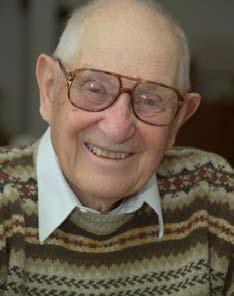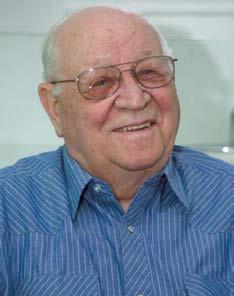
3 minute read
ICI's Kleist to be honored at national conference in June

The American Association on Intellectual and Developmental Disabilities (AAIDD) has announced that Barbara Kleist will receive AAIDD’s Policy Award for 2023 for her outstanding contributions to the field. The award will be presented to her at the 147th AAIDD Annual Meeting in Pittsburgh in June.
Kleist is the program director for entrepreneurial and development programs at the University of Minnesota’s Institute on Community Integration. She received her M.Ed. in recreation park and leisure studies from the University of Minnesota and her J.D. from Hamline University School of Law.
Kleist is co-director of DirectCourse— online curricula for life in community. Her work focuses on state and federal projects to improve community services for children and adults with intellectual and developmental disabilities and their families. Her current projects include leading training and technical assistance efforts in federal and state policy development focused on identifying best practices for improving direct support workforce stability across long-term services and supports and Medicaid funded systems. She is currently a member of the Minnesota Disability Law Center Advisory Committee, WINGS MN, and the Learning Community for Person Centered Practices, and chair of the Legal
Process and Advocacy Network of the American Association of Intellectual and Developmental Disabilities (AAIDD).
Kleist is a licensed attorney with Minnesota State Bar with 30 years of experience providing counsel and support to self-advocates and family members on a variety of topics including conflict resolution, access to home- and community-based services and supports, alternatives to guardianship, supported decision making and person-centered practices. Her relationship with a sibling provides the foundation for Kleist’s commitment to the civil and human rights of people with intellectual and developmental disabilities.
Two Minnesota brothers remembered for their invention, placed in hall
Sixteen innovation pioneers will be honored as part of the 50th class of National Inventors Hall of Fame inductees. In partnership with the United States Patent and Trademark Office, the hall of fame will honor these winners in a ceremony in October.
The hall is in Alexandria, Virginia.
The October event is not only the “Greatest Celebration of American Innovation,” it will also mark the hall’s 50th anniversary. Fifty years ago the first honoree was Thomas Edison.
Two members of the hall’s Class of 2023 have Minnesota ties. The late Cyril and Louis Keller played key roles in launching the compact equipment it's in good shape for them to take it over. The main expense will be making the three-story building handicap accessible and adapt the space for training rooms, including a wheelchair-accessible kitchen.

A grant from the Minnesota Department of Human Services will be a big help with that. A $350,000 Live Well at Home grant will go toward renovations at the donated building -- specifically to install an elevator. Junnila expects the Lighthouse will use the first two floors of the 12,600-squarefoot building, and is considering renting out the third floor. The nonprofit expects to be in the new building in June.
“With our adjustment to blindness services, it's great to be downtown near the DTA and the skywalk systems,” Junnila said. “A big part of what we do in that division is help people to use public transportation, and to be right in the center of that is really important.”
She also looks forward to the opportunity to increase awareness for the assistive technology services the Lighthouse provides. Assistive technology encapsulates many different things to help a person complete a task or function independently,
Junnila said the assistive technology branch of the organization has become their biggest customer market, and it's grown exponentially since the COVID-19 pandemic. In 2020, people became more isolated and needed more help at home. In addition, the number of people who are elderly and/or disabled continues to increase. Junnila said their services have grown alongside those needs.
The Lighthouse works with elderly adults and people with disabilities of all ages to help them learn skills, including digital literacy classes, adjustment to blindness programming and occupational therapy. The center does onsite occupational therapy and travels to clients' homes. Junnila said oftentimes, therapists can help clients identify any assistive technology they could benefit from and helps them master using it.
Another grant from the Minnesota industry in the late 1950s and early 1960s with their invention of the world’s first compact loader, which became the Bobcat skid-steer loader. What the Kellers likely didn’t expect at the time was that their invention would be used by some farmers, ranchers and tradespeople with disabilities as a unique combination work and mobility device.
Other honorees worked on a wide range of items, including medical devices, gene-editing systems, wheelchair technology and the COVID-19 vaccines. For biographies of each inductee, visit https://www.invent.org/inductees/newinductees.
Department of Human Services, a $642,000 Tech for Connectivity award, will help people who are older or have a disability to access technology. The grant will go toward getting people internet access, cell phones, or other devices and teach them how to use them for communication, medical appointments and job applications.
New book focuses on disabilities
The Way We Play, a new children’s picture book by University of Minnesota medical student Hugh Burke and his friend Kylie Donohue, a student in Chicago, is about accepting and appreciating diversity of all types. The book was recently featured in the Star Tribune.
“Each animal brings different skill sets and weaknesses to the table,” said Burke, a 25-year-old Eden Prairie native and second-year medical student.
The book is about accepting and even PEOPLE AND PLACES To page 9






